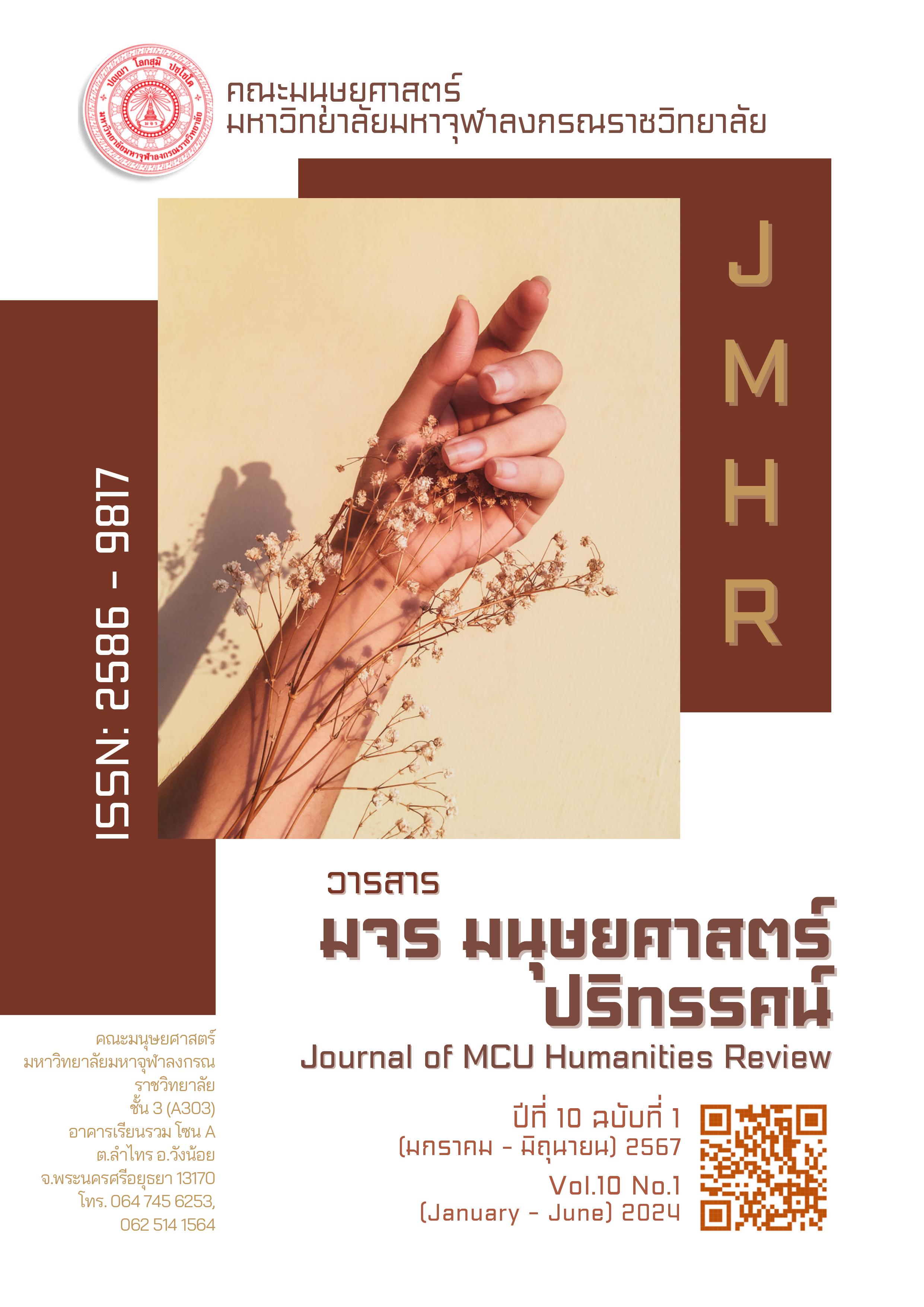สูงวัยกับความสุขอย่างยั่งยืนด้วยลดสุขเทียมเพื่อเพิ่มสุขแท้ ในยุควิถีชีวิตใหม่
คำสำคัญ:
ผู้สูงวัย, ความสุขอย่างยั่งยืน, ความสุขเทียม, ความสุขแท้บทคัดย่อ
ความสุขเป็นสิ่งที่ทุกคนมีความต้องการ ไม่ว่าจะอยู่ในเพศภาวะอะไร เพราะความสุขเป็นปัจจัยที่เอื้อต่อการดำรงชีวิตทั้งร่างกายและจิตใจโดยเฉพาะผู้สูงอายุซึ่งเป็นวัยที่ต้องมีความสะดวกทั้งร่างกายและจิตใจ เรียกว่า ความสุขบั้นปลายชีวิต ในบทความวิชาการฉบับนี้เน้นถึงความสุขที่ยั่งยืนและลดความสุขเทียมของผู้สูงอายุ ความสุขที่ยั่งยืนเป็นความสุขที่เกิดจากสภาพจิตใจที่ดีงาม มีความอบอุ่นและเข้มแข็ง สามารถปรับอารมณ์เข้าสู่สภาพปกติได้อย่างรวดเร็ว ปรับตัวเข้ากับสภาพแวดล้อมทางสังคมโดยการยอมรับความเป็นจริงตามสัจจธรรม คือความเกิด ความแก่ การเจ็บป่วยและความตายเป็นเรื่องธรรมดา คุณภาพของจิตใจดังกล่าว ต้องอาศัยการฝึกตนด้วยหลักธรรทางพระพุทธศาสนาอย่างสม่ำเสมอ เรียกว่า “บำเพ็ญบารมี”
ส่วนการดำรงชีวิตตามแนวปกติใหม่ (New Normal) เป็นการดำรงชีวิตที่มีความพร้อม ยอมรับต่อเหตุการณ์ต่าง ๆ ได้อย่างมีสติ ท้ามกลางค่านิยมในความสุขที่แสวงหาวัตถุเป็นตัวกำหนดซึ่งเป็นความสุขที่เกิดได้ไม่เท่าเทียมกัน ขึ้นอยู่กับโอกาสและศักยภาพของบุคคล ส่งผลต่อความสะดวกหรือความสุขจากวัตถุแตกต่างกัน ในความสุขที่เกิดจากวัตถุนั้นมักจะขึ้น ๆ ลง ๆ ตามสภาพเศรษฐกิจและโอกาส ไม่มีความมั่นคง จึงเรียกได้ว่าเป็นความสุขที่ไม่ยั้งยืนแตกต่างจากความสุขที่เกิดจากจิตใจอันงดงาม เข้มแข็ง มั่งคง มองโลกเป็นสัจจธรรม รู้เท่าทันต่อสภาพการณ์ต่าง ๆ อย่างผู้มีปัญญา เป็นความสุขที่มั่นคงกว่าความสุขอื่นใดในโลก
เอกสารอ้างอิง
กรมสุขภาพจิต กระทรวงสาธารณสุข. (2561). หนุนผู้สูงวัยสร้าง "สุข 5 มิติ"ส่งเสริมสุขภาพจิตดี มีคุณค่า ลดการพึ่งพิง. สืบค้น 28 มิถุนายน 2566. จาก https://shorturl.asia/VElxO
กระทรวงการพัฒนาสังคมและความมั่นคงของมนุษย์. (2546). พระราชบัญญัติผู้สูงอายุ พ.ศ.2546 (พิมพ์ครั้งที่ 7). กรุงเทพฯ : โรงพิมพ์เทพเพ็ญวานิชย์.
พระพรหมคุณาภรณ์ (ป.อ. ปยุตฺโต). (2555). พจนานุกรมพุทธศาสตร์ ฉบับประมวลธรรม (พิมพ์ครั้งที่ 23). กรุงเทพฯ : สำนักพิมพ์ผลิธัมม์.
วรรณา ประยุกต์วงศ์ และ ปารีณา ประยุกต์วงห์. (2554). เป้าหมายของกำไร : คุณค่าแห่งความร่วมมือ (พิมพ์ครั้งที่ 15). กรุงเทพฯ : โทเทิลแอ็คเซ็สคอมมูนิเคชั่น.
สถาบันวิจัยประชากรและสังคม มหาวิทยาลัยมหิดล. (2550). ดัชนีความสุขจังหวัดชัยนาท (พิมพ์ครั้งที่ 20). นครปฐม: สำนักพิมพ์สหพัฒนไพศาล.
Learning Hub Thailand. (2561). คุณกำลังติดกับความสุขจอมปลอมหรือไม่ อะไรคือความสุขที่แท้จริง. สืบค้น 30 มิถุนายน 2566, จาก https://shorturl.asia/WiR1
Tiger Rattana. (2566). ความสุขคืออะไร? นิยามความสุขที่แท้จริง. สืบค้น 30 มิถุนายน 2566, จาก https://faithandbacon.com/true-happiness
WHO. (1989). Active aging. Retrieved November, 10, 2017. From https://shorturl.asia/aNisK
ดาวน์โหลด
เผยแพร่แล้ว
รูปแบบการอ้างอิง
ฉบับ
ประเภทบทความ
หมวดหมู่
สัญญาอนุญาต
ลิขสิทธิ์ (c) 2024 วารสาร มจร มนุษยศาสตร์ปริทรรศน์

อนุญาตภายใต้เงื่อนไข Creative Commons Attribution-NonCommercial-NoDerivatives 4.0 International License.






